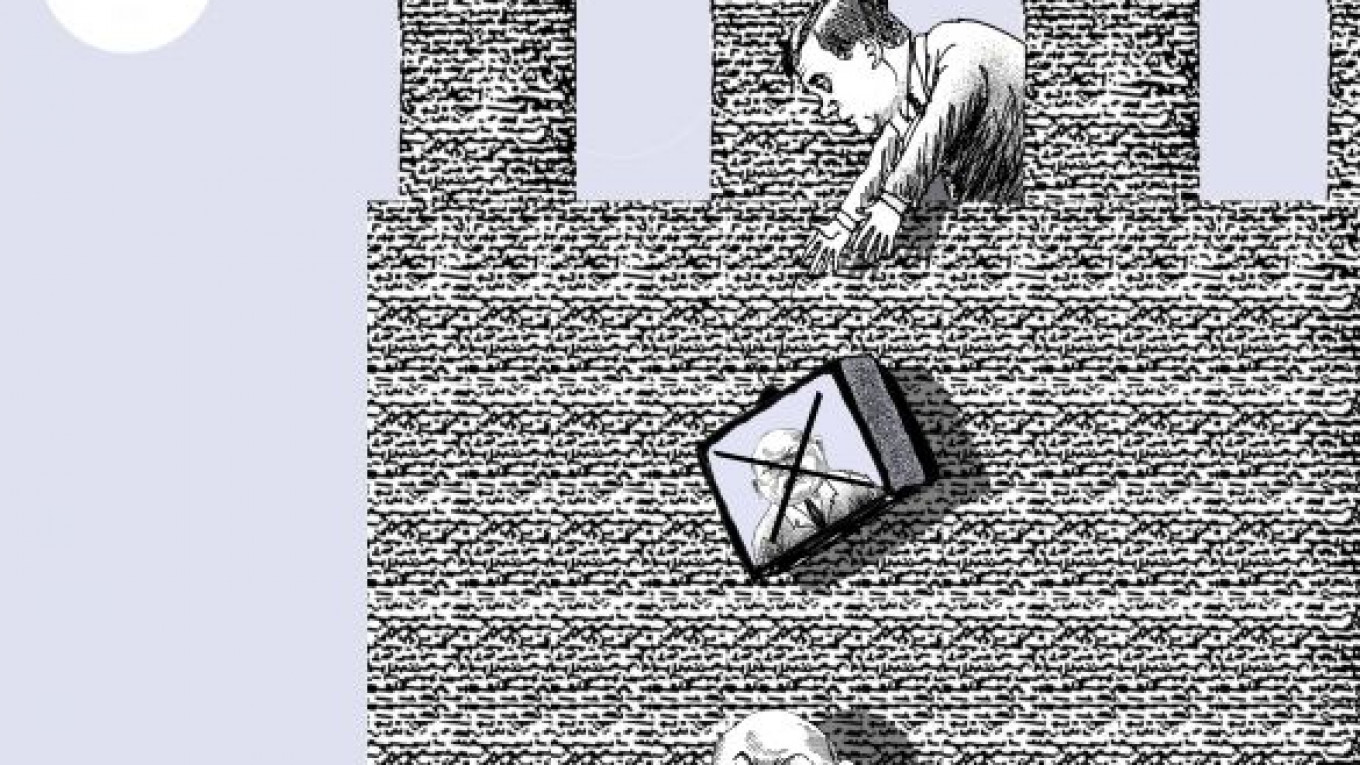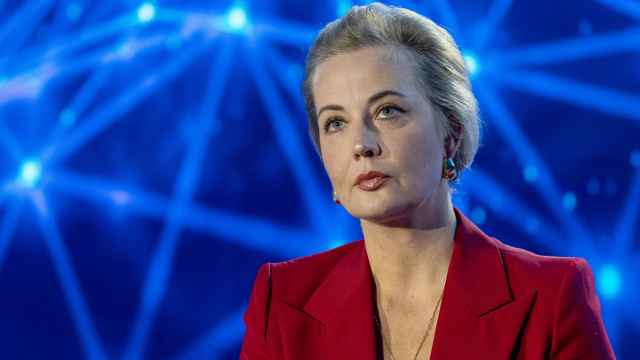If President Dmitry Medvedev or one of his assistants were to call Mayor Yury Luzhkov in for a talk, the conversation might begin with the words, “Yury Mikhailovich, ask not for whom the bell tolls.”
On Friday and Sunday, the bells were tolling quite loudly for Luzhkov from multiple sources — first from NTV television, which aired the prime-time program “Delo v Kepke” (or “The Cap Affair,” referring to Luzhkov’s trademark flat cap) containing serious corruption allegations against the mayor and his wife, Yelena Baturina. This was followed by anti-Luzhkov stories on the Sunday weekly news roundup programs on Channel One and Rossia-24.
The NTV program, however, was not a example of freedom of the press or widespread voter discontent with the mayor. The program relied on information that was already well known among politically active Internet users and the liberal opposition — including much from opposition leader Boris Nemtsov’s book, “Luzhkov. Results,” which was published a year earlier. Various corruption allegations in the Mayor’s Office had been batted around for the past 10 years. But until Friday, state-controlled television had ignored the allegations against Luzhkov.
Since the government has control of the top three television networks, it is obvious that no one else could have given the order to air such an aggressive campaign aimed at discrediting such an important political figure. (The Luzhkov television discreditation campaign comes only two months after a similar attack against Belarussian President Alexander Lukashenko, when NTV aired “Krestny Batka.”)
The question that everyone is asking is: Which member of the ruling tandem is upset with the Moscow mayor?
The dominant theory is that Medvedev is unhappy with Luzhkov, while Prime Minister Vladimir Putin remains satisfied with him. Since Medvedev and Putin always confer about major questions concerning the country — and the question of who is running Russia’s most influential and wealthiest city is certainly a matter of federal importance — it would appear that the two could not come to any agreement over Luzhkov. Medvedev has the constitutional authority to fire the mayor and would love to do so, it would seem, but Putin is not willing to back this initiative.
Thus, Medvedev had only one option available: Organize a television campaign airing some of Luzhkov’s dirtiest laundry for the whole country to see. The intention was not to convince Putin that Luzhkov needs to be removed, but to sway public opinion against Luzhkov, thereby making it politically awkward for Putin — and, by extension, United Russia — to continue defending him.
As strange as it might sound, perhaps the anti-Luzhkov campaign represents the first signs of political competition that we have seen since Putin gained power in 2000. Some members of the ruling elite are appealing to public opinion to help instigate the removal of a political heavyweight, arguably the most important regional leader in the country. Could it be an example of an important step toward developing Russia’s “young and imperfect” democracy , as Medvedev described it in his speech in Yaroslavl on Friday?
The problem, however, is that Luzhkov has denied all allegations against him as a vicious smear campaign and flatly refuses to step down. If Luzhkov does, in fact, survive the attacks — and there may be more to come — and avoids both dismissal and criminal investigations, Medvedev and the Kremlin will end up looking very bad.
The other theory is that both Putin and Medvedev have it in for Luzhkov — not because they are in the slightest concerned with the allegations of corruption against the mayor but because Luzhkov had the gall to speak publicly about some of the disagreements between the two members of the ruling tandem. The Kremlin perceived that as an attempt to drive a wedge between Putin and Medvedev. According to this theory, the tandem agreed that the political and economic fallout of firing Luzhkov would be excessively high, but at the same time he should be taught a strict lesson for speaking out against the tandem.
That lesson very well may mean that Luzhkov will be forced to renegotiate the conditions of his grip on power. It is clear that the complete carte blanche that he has used and abused for so many years will become a thing of the past. But the larger question that remains is will Luzhkov end up paying a much heavier price for his misdeeds?
This comment appeared as an editorial in Vedomosti.
A Message from The Moscow Times:
Dear readers,
We are facing unprecedented challenges. Russia's Prosecutor General's Office has designated The Moscow Times as an "undesirable" organization, criminalizing our work and putting our staff at risk of prosecution. This follows our earlier unjust labeling as a "foreign agent."
These actions are direct attempts to silence independent journalism in Russia. The authorities claim our work "discredits the decisions of the Russian leadership." We see things differently: we strive to provide accurate, unbiased reporting on Russia.
We, the journalists of The Moscow Times, refuse to be silenced. But to continue our work, we need your help.
Your support, no matter how small, makes a world of difference. If you can, please support us monthly starting from just $2. It's quick to set up, and every contribution makes a significant impact.
By supporting The Moscow Times, you're defending open, independent journalism in the face of repression. Thank you for standing with us.
Remind me later.






